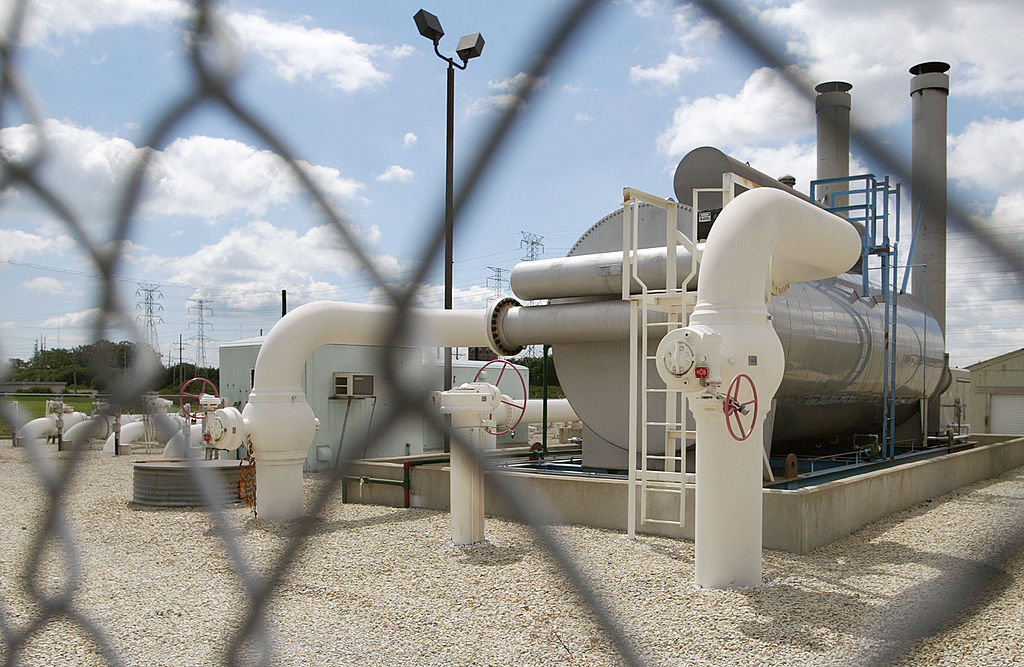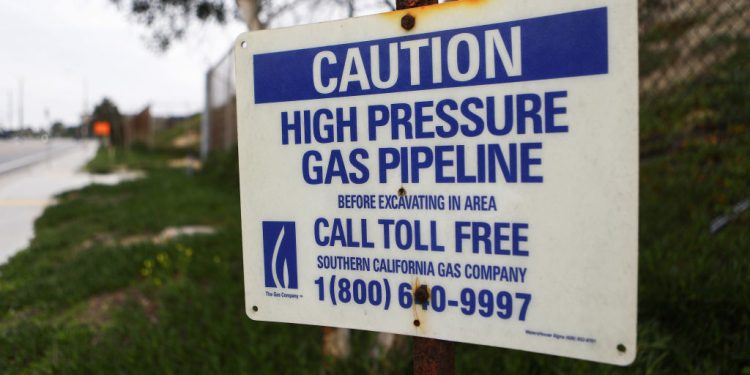A new report published by the National Center for Energy Analytics slammed politically-imposed limitations on the United States liquefied natural gas market.

LNG—produced by converting natural gas to a cooled, liquid state for storage and transportation—has a vital role in reducing carbon emissions and providing heat for building materials, fuel for vehicles, and molecules for fertilizers and plastics.
The report highlights what the Biden-Harris Administration policy has been doing to restrict the US from growing more efficient with using LNG and the potential for safer fuel and economic growth.
Report Author Tristen Abbey, a Senior Fellow at the National Center for Energy Analytics wrote,
The U.S. emerged as the world’s top exporter of liquefied natural gas (LNG) in 2023. This did not happen overnight or by accident. It happened because American shale boosted natural gas production to record highs, mostly on state and private land. This country’s electric power sector fuel-switched from coal to gas, and, to a lesser extent solar and wind. The industrial sector also increased its consumption of newfound cheap feedstock.
The real game-changer, however, was trading the remaining surplus: sophisticated infrastructure originally intended to import LNG into the country was converted to even more sophisticated infrastructure designed to export LNG overseas. Customers in resource-scarce Asia and Europe deliberately sought out supply agreements with this country’s liquefaction companies, for a mix of geopolitical and economic reasons, which sent a recurring signal back to oil and gas drillers to keep drilling.
Unlike crude oil, gasoline, diesel, jet fuel, propane, ethane, and other energy sources, natural gas exports are tightly regulated. The Federal Energy Regulatory Commission (FERC) is tasked with permitting export facilities under the 1970 National Environmental Policy Act (NEPA). The Department of Energy (DOE) authorizes the export of natural gas itself under the Natural Gas Act of 1938, which, with certain exceptions that must be approved automatically, provides it with a degree of discretion.
Export terminals operating today that are enabling U.S. allies in Europe to reduce their dependence on Russian energy navigated an extremely complicated permitting process, compounded with increasingly divisive politicization, to reach this point. There is no end in sight to the developing global LNG market, though political opposition to natural gas production, consumption, and exports could bring an end to U.S. dominance. Projections of greater electrification and industrialization around the world entail greater consumption of natural gas as a practical necessity. That gas will be supplied by somebody.
Unfortunately, the Biden administration’s “pause” of the most important category of LNG export authorizations during an election year is only the latest move that increases the political risk borne by potential investors in American energy. As the energy transition begins to suffer cracks while it faces economic and geopolitical realities, that political risk could intensify rather than relax
In the Biden – Harris policy they assert we need to slow this production due to climate change.
President Biden has been clear that climate change is the existential threat of our time – and we must act with the urgency it demands to protect the future for generations to come. That’s why, since Day One, President Biden has led and delivered on the most ambitious climate agenda in history, which is lowering energy costs for hardworking Americans, creating millions of good-paying jobs, safeguarding the health of our communities, and ensuring America leads the clean energy future.
Today, the Biden-Harris Administration is announcing a temporary pause on pending decisions on exports of Liquefied Natural Gas (LNG) to non-FTA countries until the Department of Energy can update the underlying analyses for authorizations. The current economic and environmental analyses DOE uses to underpin its LNG export authorizations are roughly five years old and no longer adequately account for considerations like potential energy cost increases for American consumers and manufacturers beyond current authorizations or the latest assessment of the impact of greenhouse gas emissions. Today, we have an evolving understanding of the market need for LNG, the long-term supply of LNG, and the perilous impacts of methane on our planet. We also must adequately guard against risks to the health of our communities, especially frontline communities in the United States who disproportionately shoulder the burden of pollution from new export facilities. The pause, which is subject to exception for unanticipated and immediate national security emergencies, will provide the time to integrate these critical considerations.
The U.S. is already the number one exporter of LNG worldwide – with U.S. LNG exports expected to double by the end of this decade. At the same time, the U.S. remains unwavering in our commitment to supporting our allies around the world. Today’s announcement will not impact our ability to continue supplying LNG to our allies in the near-term. Last year, roughly half of U.S. LNG exports went to Europe, and the U.S. has worked with the E.U. to successfully economize consumption and manage its storage to ensure that unprovoked acts of aggression cannot threaten its supply. Furthermore, in 2022, the E.U and U.S. pledged to work toward the goal of ensuring additional LNG volumes for the E.U. market – with the U.S. exceeding our annual delivery targets to the E.U. in each of the past two years. Through existing LNG production and export infrastructure, the U.S. has – and will continue – to deliver for our allies.
Other industry analysts also reported on this topic to the Texas Public Policy Foundation, a think tank in Austin Texas.
NCEA adviser Scott Tinker, director emeritus of the Bureau of Economic Geology at the University of Texas, elaborated on that conclusion to the Texas Public Policy Foundation.
Tinker stressed that LNG—produced by converting natural gas to a cooled, liquid state for storage and transportation—has a vital role in reducing carbon emissions and providing heat for building materials, fuel for vehicles, and molecules for fertilizers and plastics.
Since 2016, U.S. LNG exports have skyrocketed from nearly none to around 12 billion cubicle feet daily. The U.S. was crowned as the top LNG exporter in the world.
“LNG is the only way to move natural gas across the oceans, making it globally fungible,” stated Tinker. “To politically limit U.S. LNG is silly.”






